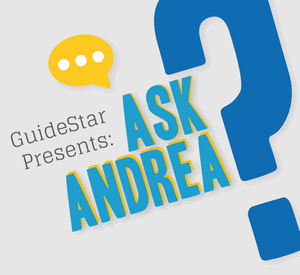Making decisions often begin with a YES or a NO. But that’s usually just the start of a more complicated process.
For many people, the big questions are decided by instinct. You find the answers not with thorough research, but rather by testing the decision against an inner emotional or intuitive response.
And that’s what I did with an opportunity that came my way. To try to get a sense of whether I wanted to be the “fundraising guru” for an artists’ crowdfunding platform, I talked with friends and colleagues about the project.
I asked for their thoughts and opinions not just to learn more, but because I could evaluate my own instincts better as I talked about it.
As I described the opportunity, I paid attention to whether I was drawn to it or not.
Did I find myself shrinking from it or did it pull me forward?
Did it feel hollow or resonant?
Important Decision-Making Data is Inside You
Before you make an important decision, pay close attention to your inner responses.
- What is your body telling you about the decision?
- Does your energy rise or fall as you think about it?
- Do your eyes glaze over? Or do you wake up in the middle of the night excited?
- Do you have to force yourself to think about the possibilities or is it hard to stop thinking about it?
It’s easy to forget that some of the most important clues for making a decision are your internal sensations. So as you consider the facts and the consequences, pay close attention to the messages your body and heart are sending you.
Be Hyper-Aware of Your Inner Sensations
Make a list of the internal sensations you have whenever you’re faced with a difficult decision.
By becoming more aware of your internal responses, you’ll be able to recognize and evaluate them to help you make your most important decisions. Once you understand them, they will seldom lead you astray.
What are three of your “telltale” internal sensations that can help you make a decision? Tell me about them the comments.

Many of us are trained to be conscious and rational in our thinking and decision making. Rene Descartes’ “error” was to encourage the belief that mind and body were separate and we must cultivate and obey the conscious processes of the mind (our inner voices). The unconscious is a far more powerful tool if you can learn to tap it. The unconscious is the source of creative, imaginative entrepreneurial and daring thought. My three signs? A sensation of excitment in my chest; a sudden clarity and focus in my mind; a lifting of weight from my shoulders.
Thanks for your comment, John. Yup. I too think that Rene Descartes got it wrong! And don’t you love that sensation of clarity and focus when you have an idea that lights you up? Mmmmmm. I love those moments.
Internal awareness is a great corrective to the feeling that “I can’t afford to pass this opportunity up.”
Yes it is. Someone just emailed me about feeling her eyelids get heavy when an opportunity came her way. A sure sign to say “no.” Even thinking about that makes me weary.